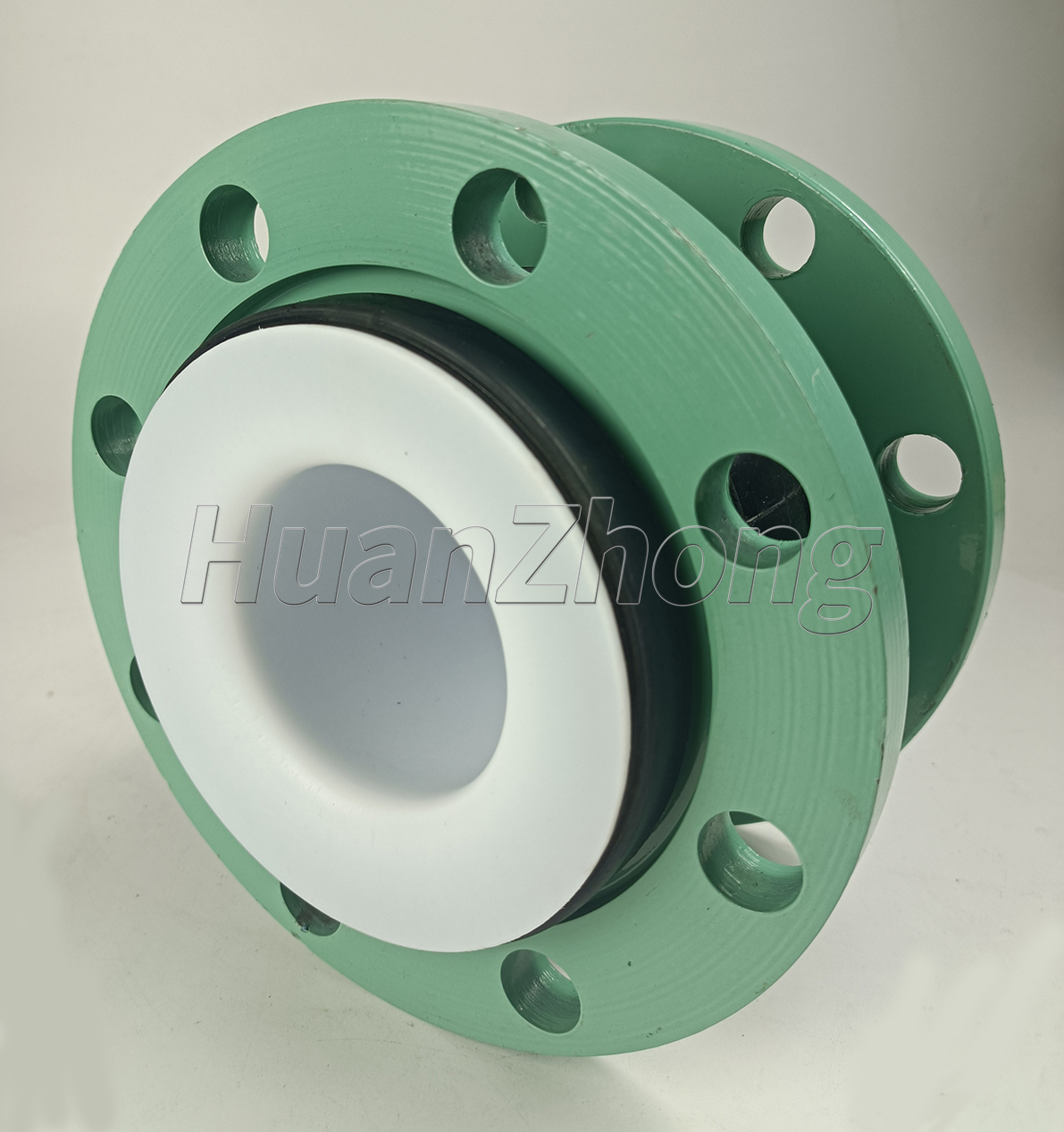PTFE-lined rubber expansion joints are more commonly used in chemical pipelines.
PTFE lined rubber expansion joint has excellent chemical stability, corrosion resistance, is one of the best materials on corrosion resistance today, in addition to molten metal sodium and liquid fluorine, can resist all other chemicals, boiling in king water also did not change, widely used in a variety of need to resist acid and organic solvents.
PTFE material with its good corrosion resistance, has become the main corrosion-resistant materials for petroleum, chemical, textile and other industries. Its specific applications include: transport pipes for corrosive gases, exhaust pipes, steam pipes, high pressure oil pipes for steel rolling mills, high and low pressure pipes for aircraft hydraulic systems and cold pressure systems, distillation towers, heat exchangers, lining of kettles, towers and tanks, valves and other chemical equipment.
PTFE coating is mainly white, and it maintains excellent mechanical properties in a wide temperature range from -180 to 260°C. One of the characteristics of perfluorocarbon polymer is that it is not brittle at low temperatures. In addition to molten alkali metals, PTFE is almost immune to corrosion by any chemical reagents. For example, in concentrated sulfuric acid, nitric acid, hydrochloric acid, and even boiling in aqua regia, its weight and performance are not changed, and almost insoluble in all solvents, only slightly soluble in full alkane above 300 ℃ (about 0.1g/100g). PTFE does not absorb moisture, is not flammable, and is extremely stable to oxygen and ultraviolet light, so it has excellent weather resistance. Therefore, it has excellent weather resistance. The coating is non-toxic, solvent-free, non-exudate, and does not contaminate the medium, so it is more suitable for pharmaceuticals where hygiene conditions are extremely demanding.
